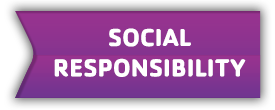Many parents and caregivers find speaking to their children about abuse to be uncomfortable. Framing these conversations around other safety conversations you have may help you work through some of that uncomfortableness. Below you’ll find age-appropriate ways to talk to your child about boundaries and preventing abuse.
Young Children
Parents can start these conversations simply by ensuring young children know the correct names for their body parts. Children who know the proper names are able to talk more clearly to parents or other adults if something inappropriate happens. As you’re teaching body part names, you can help your child learn that parts of their body are private and that only their parents/caregivers can see them. Don’t forget to note that doctors may see them naked but only because you’re there with the doctor!
Equally important is to teach children boundaries both for themselves and for others. Boundaries have easily teachable moments, such as when a child doesn’t want to hug a relative, or during a tickle fight a child yells “Stop!”. Allowing young children to set their own boundaries teaches them body autonomy and helps them know when something makes them uncomfortable so that they can speak up.
Many abusers will tell a child to keep abuse a secret. It’s important that children understand that adults should never ask them to keep a secret, and if they do, they should tell you.
Teens
As children grow older, it’s key to keep lines of conversation open, so that they feel comfortable talking to parents or trusted adults if something happens to them or a friend. Talk to your teens about their friends, the other adults in their lives, social media, and electronic communication. They need to know to not accept requests from people they don’t know, how to respond if someone (even a friend) asks them to send nude photos and that conversations online are never truly private. Continue the conversations about boundaries and what boundary violations look and feel like. Let them know that you are there to listen and support them.
To Learn More:














